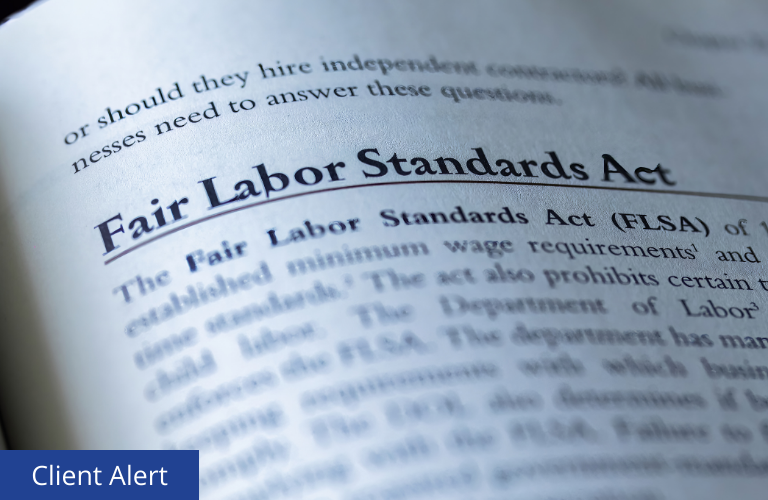
On January 10, 2024, the U.S. Department of Labor (DOL) published its Final Rule amending the criteria used to determine whether a worker qualifies as an employee or an independent contractor under the Fair Labor Standards Act (FLSA). The Final Rule is available here. While the Final Rule goes into effect March 11, 2024, legal challenges are expected and may impact when or if the Final Rule takes effect. The Final Rule rescinds the preceding 2021 rule and replaces it with six-factor test focused on the “economic reality” of the relationship between a potential employer and a worker to determine… Read more
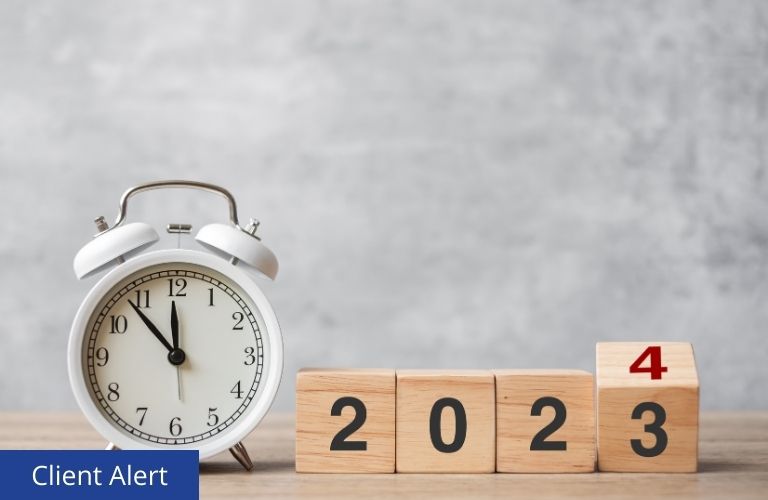
Upcoming Cuts to Estate and Gift Tax Exemptions, and Importance of Prompt Decisions and Actions: Most estate planning clients of SGR’s Private Wealth Trusts & Estates Practice Group are familiar with the unified estate and gift tax exemption. That exemption allows a donor or to transfer property during life or at death without paying gift or estate taxes, respectively. The base exemption was raised to $5 million in 2011 and has since been increased for inflation. (The exemption for the Generation-Skipping Transfer Tax, or “GST Tax,” has tracked that same exemption amount starting in 2011.) The base exemption was doubled… Read more

There is no excerpt because this is a protected post.

On November 24, 2023, the IRS released the long-awaited Proposed Regulations addressing the changes made by the SECURE Act and SECURE 2.0 related to long-term, part-time employees (“LTPTs”) in 401(k) plans. While the IRS uses the name ‘long-term, part-time employees’ in the Proposed Regulations, these rules apply to part-time, seasonal and other types of reduced-hours workers, and could potentially apply to even some full-time employees if a plan uses hours to determine eligibility to participate. The Proposed Regulations would amend Treasury Regulation 1.401(k)-5 to reflect the LTPT rules and would be applicable for plan years that begin on or after January… Read more

On November 17, 2023, Governor Kathy Hochul signed Senate Bill 3539, which amended Section 756-a and Section 756-c of the New York General Business Law (commonly known as the Prompt Payment Act), which applies to all private commercial construction projects having a value of $150,000 or more. The bill is intended to ensure timely payments to contractors as well as limit the amount of retainage that can be withheld. As amended, Section 756-a now provides that a contractor can submit its final invoice for payment to the owner upon substantial completion, as that term is defined in the construction contract… Read more
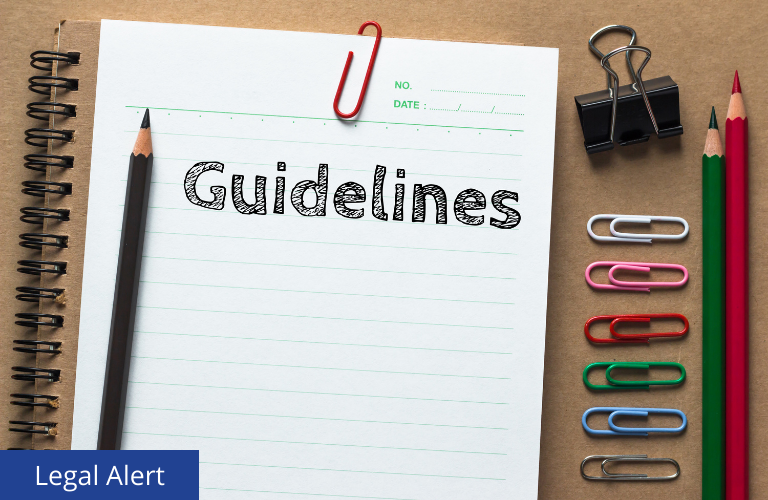
‘Tis the season for celebration. For employers, that may mean hosting an annual holiday party, catering an office luncheon, or distributing end-of-year gifts and bonuses. However, with the holiday season comes potential liability. Office Parties Many companies host a holiday party or special gathering for their employees. Employers hosting holiday parties or other festive events should ensure that it is clear to employees that attendance at said event is voluntary, unless the company intends to pay hourly employees for the time spent at the function. Employers may run afoul of the Fair Labor Standards Act (“FLSA”) or equivalent state law… Read more

Chicago and Illinois employers should revisit their paid leave policies before the New Year. Illinois’ Paid Leave for All Workers Act (“PLFAW Act”), 820 ILCS 192/1 et seq., effective January 1, 2024, applies to nearly all Illinois employers (outside of those covered by the more generous Chicago and Cook County laws), with limited exceptions. Under the PLFAW Act, employees must accrue at least 1 hour of paid sick leave for every 40 hours worked up to a minimum of 40 hours annually, unless the employer allows more leave. Alternatively, employers can frontload the full amount of leave on the first… Read more
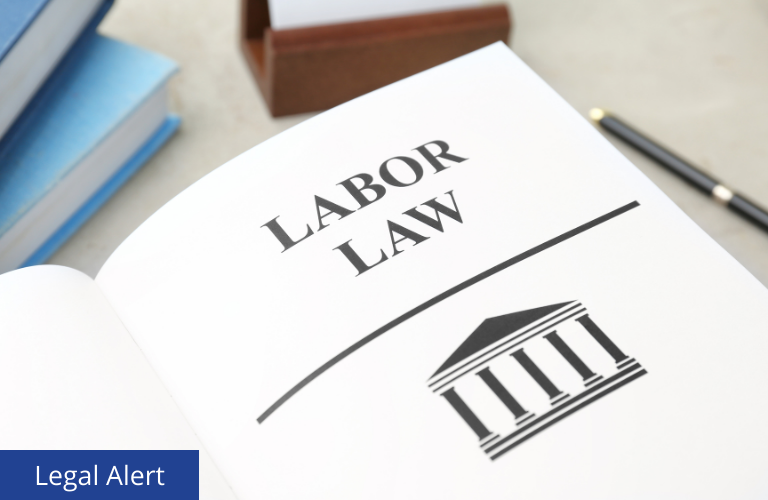
New York Governor Kathy Hochul recently signed legislation (S.B. 5572) that, effective March 13, 2024, will change the salary threshold governing various exemptions under Article 6 of the New York Labor Law (“NYLL”). For reference, Article 6 generally regulates how frequently and the method by which employees must be paid. Employers who violate provisions of Article 6 regulations have committed “wage theft” and claims for wage theft include unpaid wages, illegal deductions, unpaid wage supplements, minimum wage and overtime pay. Effective March 13, 2024, any employee making less than $1,300 a week (including any employee working in an executive, administrative… Read more
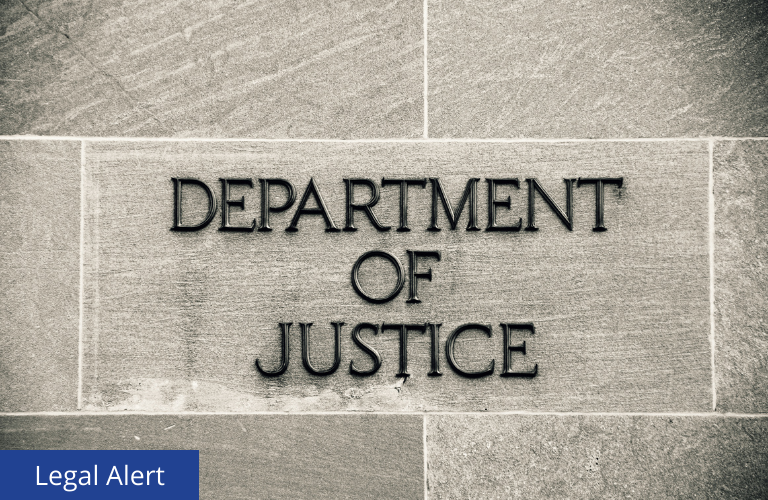
The Criminal Division of the United States Department of Justice (DOJ) encourages companies to cooperate with the government whenever criminal conduct is discovered. A recent case demonstrates how voluntary self-disclosure and cooperation can help a business avoid criminal charges. It also demonstrates how extensive such cooperation must be in order to receive full credit. On October 24, 2023, the DOJ indicted Kenia Valle Boza, a former executive with HealthSun Health Plans, Inc., on six charges involving Medicare fraud in connection with a HealthSun Medicare Advantage Plan. According to the DOJ, Boza devised a scheme to submit to the Centers for… Read more
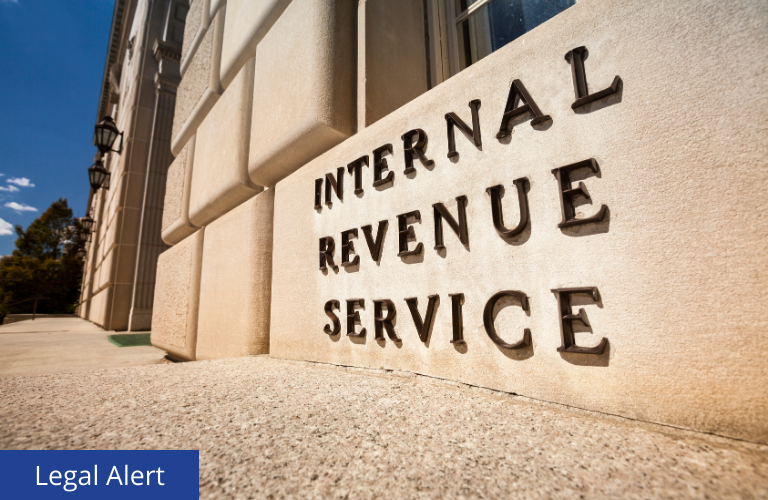
Effective: January 1, 2024 The IRS has released the 2024 cost-of-living adjustments applicable to the dollar limitations on benefits and contributions of retirement plans and health and welfare benefit plans. We recommend plan sponsors update their systems and formulas to include the limits that have been adjusted. For a printable version of this chart, click here. For more information on these cost-of-living adjustments, contact your SGR Executive Compensation and Employee Benefits counsel.











